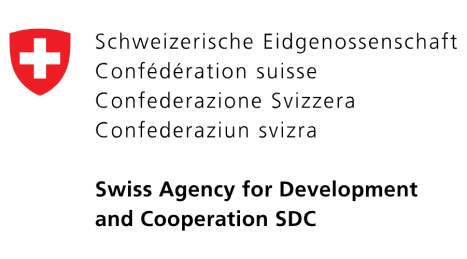
Myanmar
Switzerland supports Myanmar in four areas of cooperation: employment and vocational skills development; agriculture and food security; health, social services and local governance; and peace promotion, democratisation and protection. The geographic focus is south-eastern Myanmar.
Myanmar, with a population of 60 million, is in the midst of three major transformations: from an authoritarian military rule to democratic governance; from a centrally-planned to a market-driven economy; and from 60 years of armed conflict to consolidated peace. Yet progress is constrained by continued distrust between ethnic, religious and political groups; the continued monopolisation of resources by an economic elite; and weak social services and institutions.
Switzerland aims to contribute to the steady construction of peace and an open, democratic society, the reduction of chronic poverty, and the growth of a sustainable national economy. All stakeholders within the federal administration coordinate their activities using a common approach. Key partners in the development cooperation are:
- Swiss NGOs: Swisscontact, 600 young people
- Government and authorities at central, state and district level
- Local NGOs
- Representatives of ethnic groups
- International NGOs: Norwegian Refugee Council
- Multilateral organisations: UNFPA, WFP, ICRC, UNICEF, OCHA, UNHCR, IOM, UNOPS (United Nations Office for Project Service)
Vocational education and training
Training and access to employment
Switzerland works in cooperation with all the key partners (the government, private sector, development agencies) to expand training opportunities for young and disadvantaged people in rural areas, and to meet the high training needs of the tourism industry. It is also committed to policy changes in the vocational skills development sector in Myanmar (qualification framework, certifications mechanisms, standards).
Agriculture and food security
Access to land and productive resources for farmers
Switzerland is committed to supporting the adaptation of national policies related to land use and natural resources management at the policy level. At the local level in south-eastern Myanmar, it supports initiatives to promote smallholder rubber production value chains in the coastal low land and sustainable use of aquatic resources in the Gulf of Mottama. Food assistance is also provided in critical and emergency situations through partners such as the World Food Programme (WFP).
Health, social services and local governance
Access to health care, infrastructure and decision-making
Switzerland is committed to improving access to quality health care services in the rural areas of south-eastern Myanmar, with a focus on maternal, child and newborn health. It also supports the development of the health system in Myanmar at the policy level.
Improving community infrastructure such as schools, roads and health centres remains one of Switzerland’s important contributions in Myanmar's remote and post-conflict areas. An initiative to strengthen the voice and capacity of civil society organisations and the local authorities in the country's current development debate is also being supported.
Promotion of peace, democratisation and protection
Supporting the transition to a peaceful and inclusive society
In the area of peacebuilding, Switzerland provides direct support to the parties in negotiation by providing advisory services to government and ethnic groups, and promotes a broader inclusion of civil society and women in the negotiation process.
Swiss engagement for democratisation aims at increasing the acceptance of democratic values and norms within Myanmar society. It strengthens the legal framework by assisting relevant reforms (e.g. electoral system, judiciary) and by advocating for the ratification of key international instruments. In all its activities special consideration is given to vulnerable groups, in particular internally displaced persons, refugees, returnees, children and victims of mines.
History of cooperation
Greater commitment following the political upheavals
Switzerland has been involved in the Myanmar since 1994, primarily through the SDC's Humanitarian Aid Department. In November 2012, Switzerland opened an embassy in Myanmar. Swiss humanitarian activities are being complemented by a broader programme to support the transition to democracy, consolidation of peace and poverty reduction. Myanmar is part of the SDC’s regional Mekong programme.
Engagement in fragile contexts and prevention of violent conflicts
https://www.eda.admin.ch/deza/en/home/countries/myanmar.html